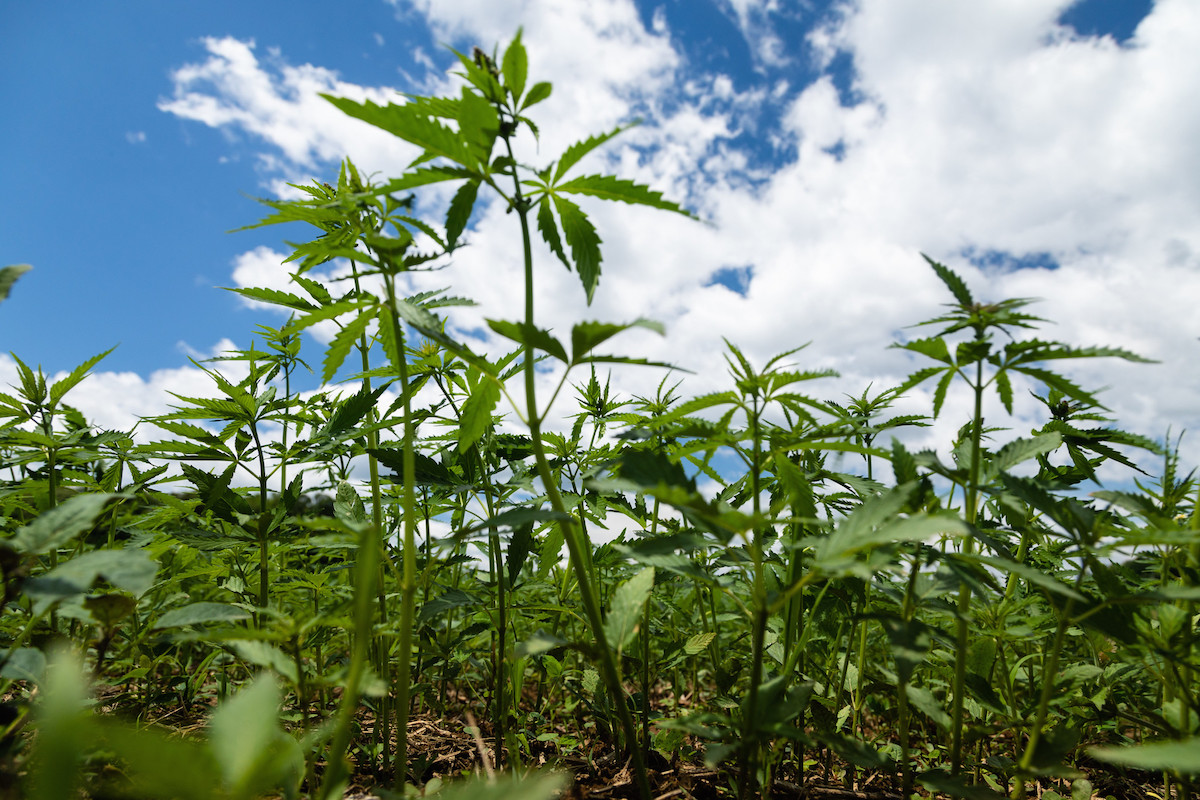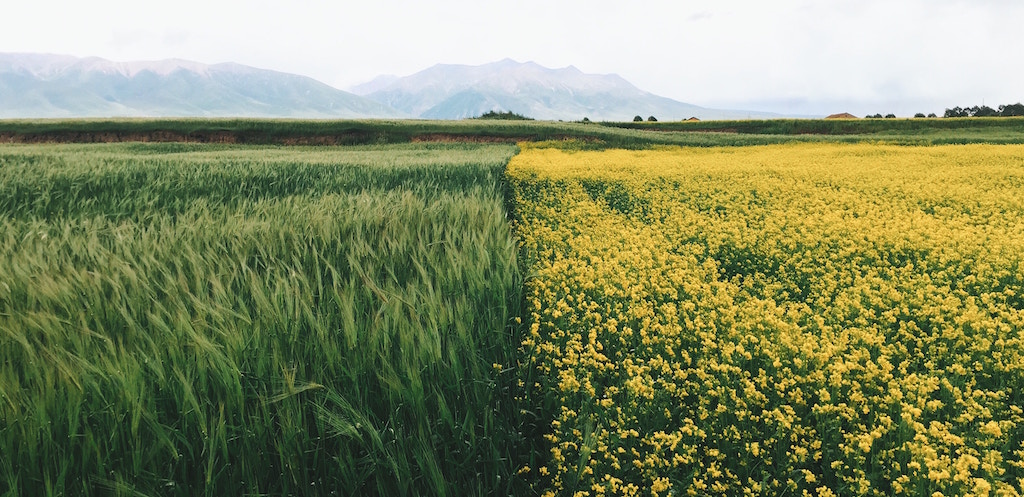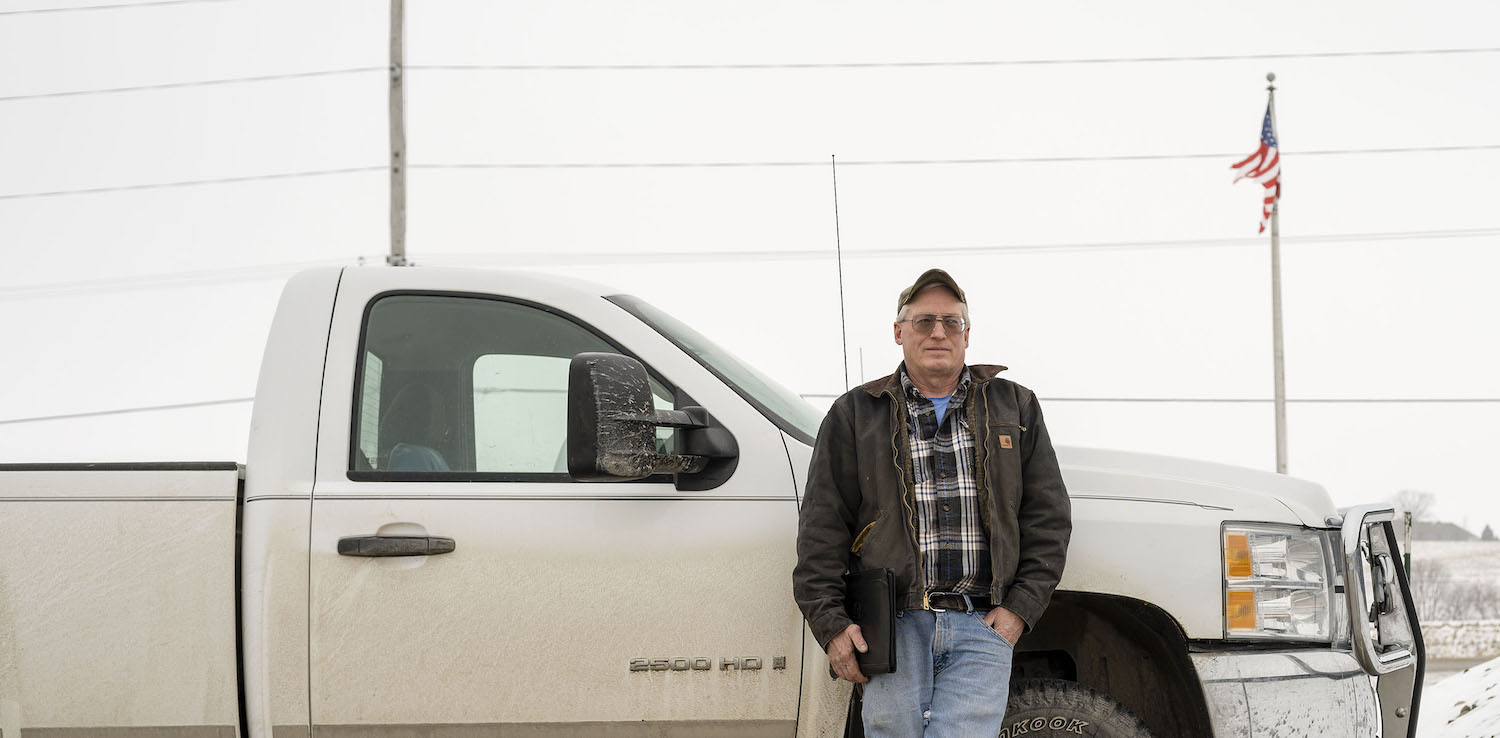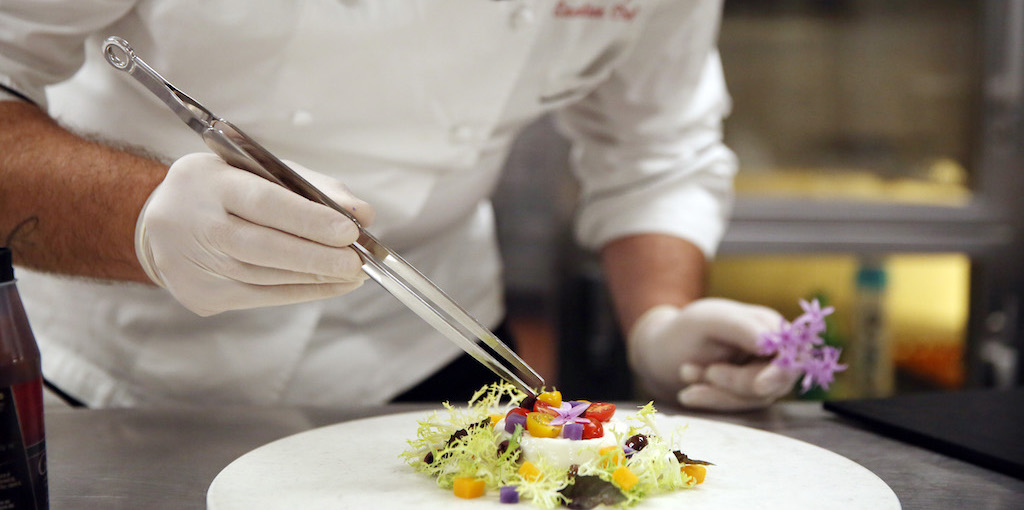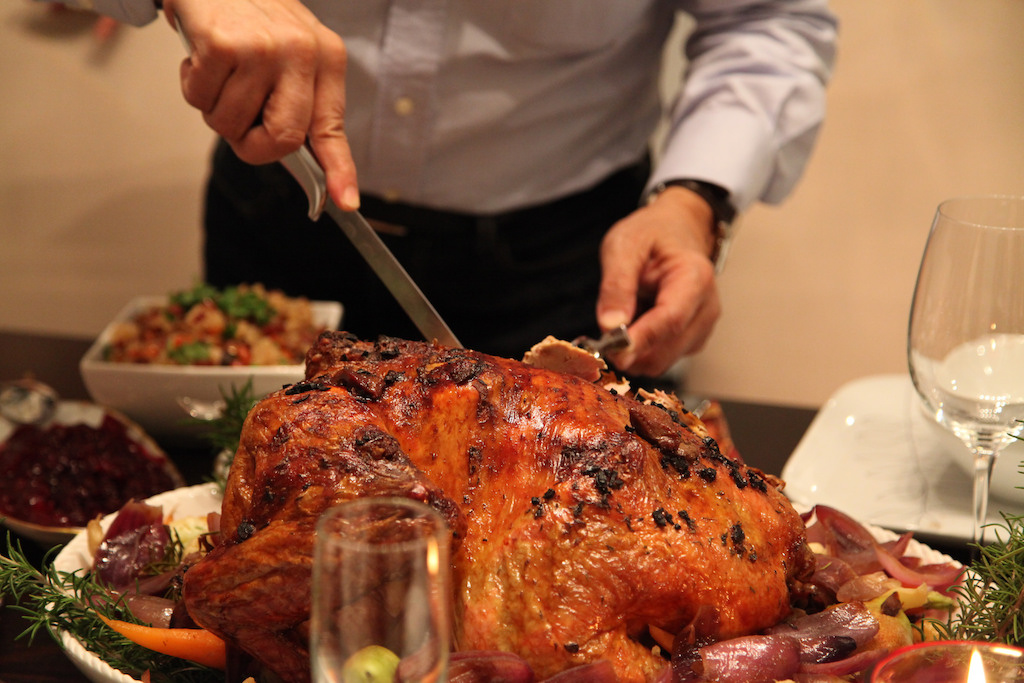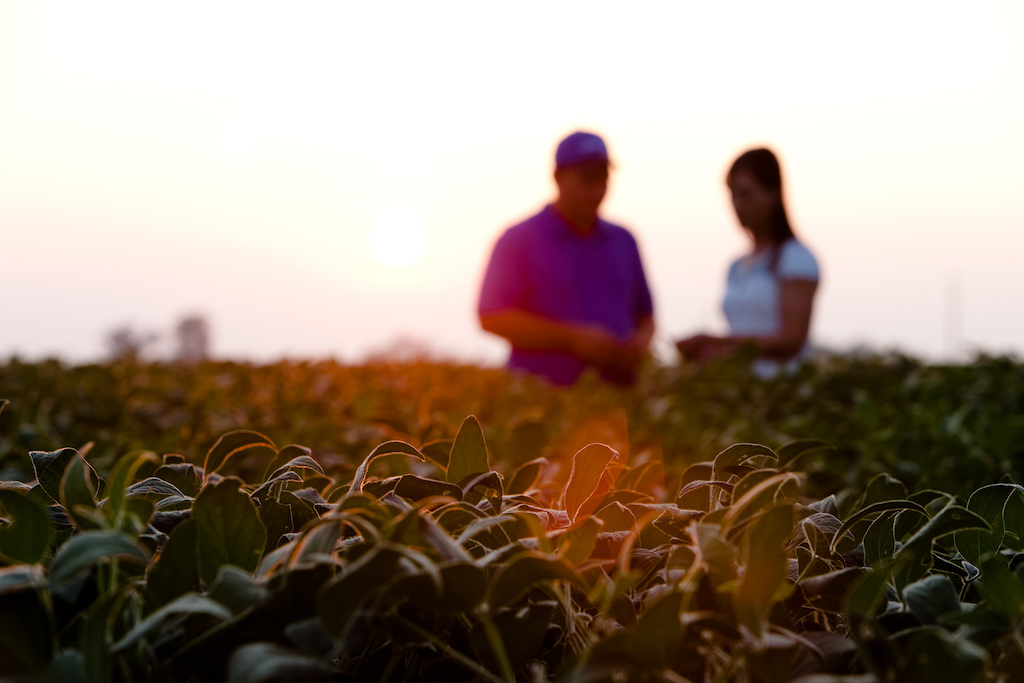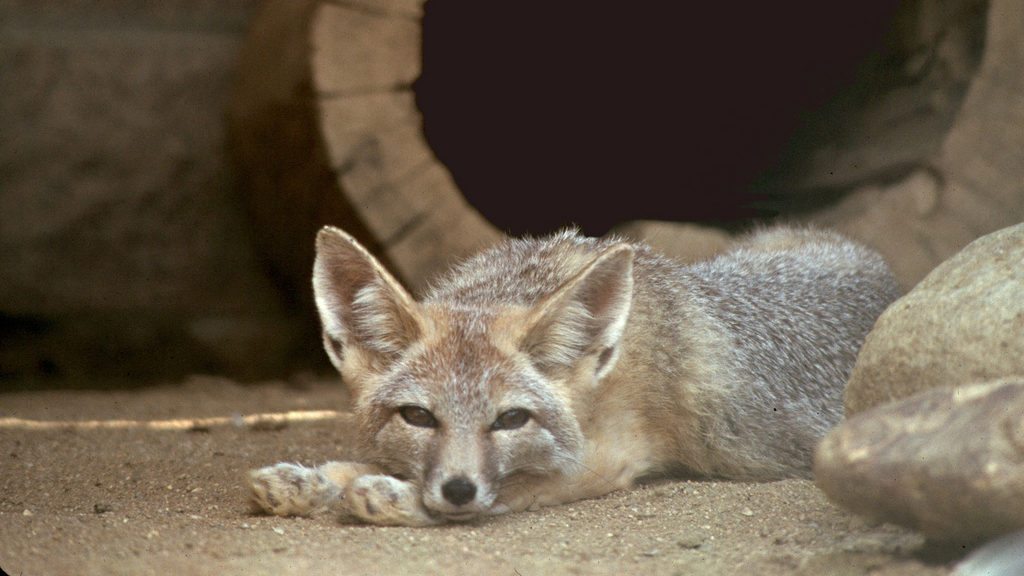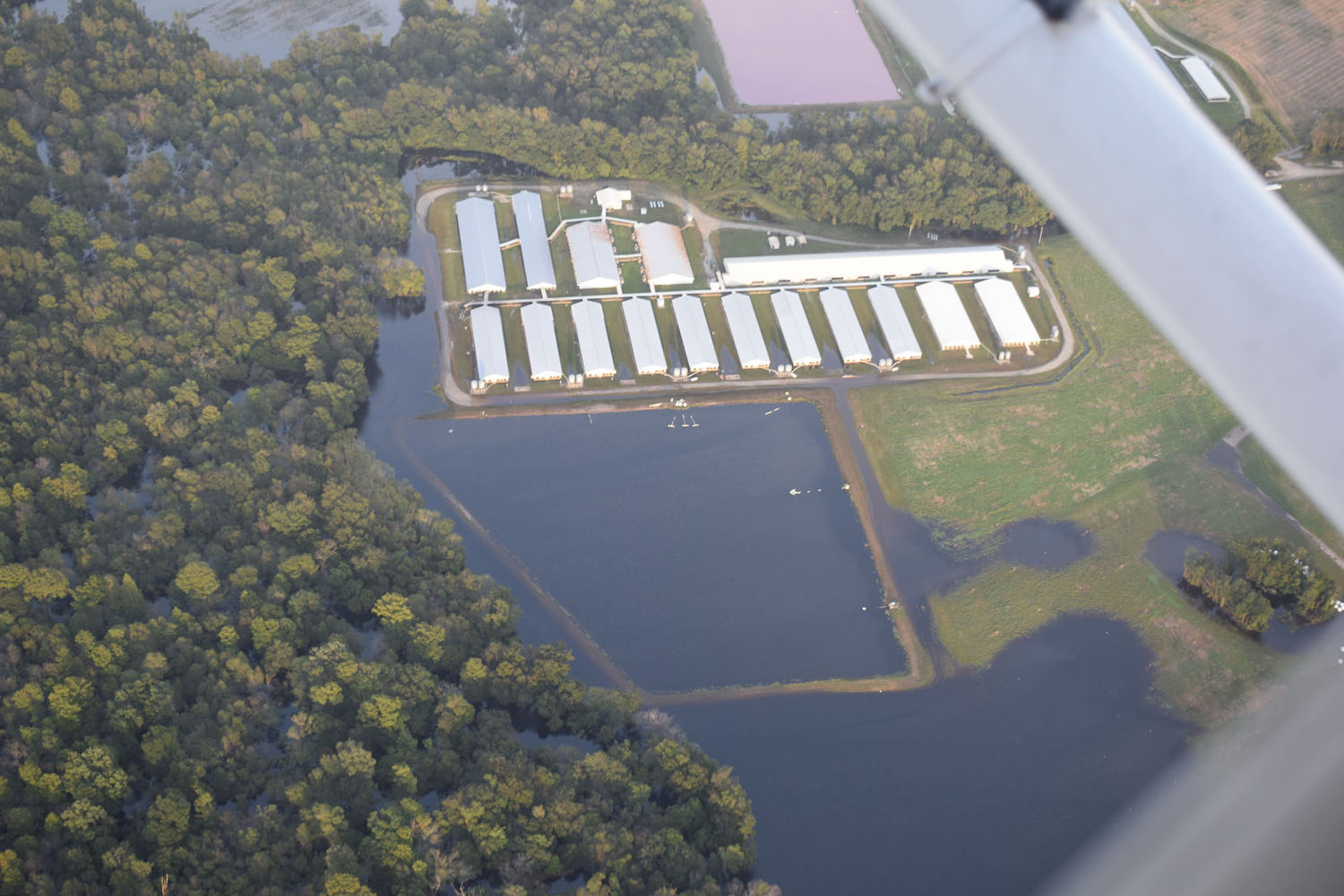Last year, Mark Rozmarynoski and his fiancée Rebecca Sarazin were at an impasse, as they tell it. His family’s dairy farm in Denmark, Wisconsin, was collapsing under debt. He worked construction and she ran a nurse staffing agency, but their earnings weren’t enough to save the place.
So they decided to start a hemp business. The crop is legal to farm in Wisconsin as part of two-year-old pilot project. And it looked like a lucrative solution, since it can fetch as much as $40,000 an acre, according to New Frontier Data, from buyers who want extracted CBD, or cannabidiol, to make oils, balms, supplements, and drinks. After testing out one acre on the family farm, they quit their jobs, bought a 40-acre farm of their own, and leased hundreds more acres—to grow the crop, but also dry and process it for themselves and eventually other farmers.
To set up the business, called Konopié, they opened checking and savings accounts at Denmark State Bank, where Rozmarynoski is a long-time customer. They were home free for eight months, Sarazin says, before the bank had second thoughts. Tobias Olson, the bank’s vice president, informed the couple in an August 8 letter shared with The New Food Economy that it was closing 11 accounts because of activity “outside of the risk tolerances established by the bank.” Olson declined to comment.
“We had it all set,” Sarazin says. “They were our trusted financial institution, and then, suddenly, they’re not.”
Politicians on both sides of the aisle may not agree on much, but they are working together to get regulatory agencies to advise banks skittish about underwriting a risky new product. In April, Republican Senator Mitch McConnell of Kentucky and Democratic Senator Ron Wyden of Oregon wrote letters to four agencies to request financing guidance.
George Washington grew hemp at his home in Mount Vernon, Virginia
“We have heard consistently from lawful hemp farmers and producers about the lack of access to financial products,” read one letter. “Legal hemp businesses should be treated just like any other businesses and not discriminated against.”
Only the Farm Credit Administration, which oversees farm loans, has responded. The Senators are still waiting to hear from the others: the Federal Deposit Insurance Corporation, which backs up bank assets; the Office of the Comptroller of Currency; and the Federal Reserve. The Financial Crimes Enforcement Network, which analyzes deposits and large transactions, will weigh in as well.
And while regulatory language from those agencies is imminent—likely before the end of the year, if not sooner—at the moment, hemp farmers are caught in a waiting game no matter what. The 2018 farm bill, signed a few months before the Wisconsin couple started to plant, removes hemp from the federal controlled substances list. It’s supposed to broaden a research pilot program defined by the 2014 farm bill that led to more than 16,000 growers licensed to cultivate around 550,000 acres, according to New Leaf Data Services, a market research firm. And it established a national hemp program, managed by the United States Department of Agriculture (USDA), that states can opt into by submitting production plans.
But the federal legislation doesn’t kick in until December, and implementation may drag on for a year, according to recently released interim rule from USDA. There’s a gap between intention and execution, and in that space, some wary banks will continue to treat hemp as no different than marijuana, its more potent genetic cousin, says Ann Wasik, a Wells Fargo spokeswoman. Financing a controlled substance could cause a bank to lose its business charter; safer to back away until the rules are made clear.
Rozmarynoski was licensed by the state to grow and process hemp when he received the bank letter, according to copies of licenses shared with The New Food Economy. Denmark State Bank closed the couple’s business accounts as well as their personal savings and checking accounts.
“We had to scramble, and our cash was getting very low, because as a farmer, we don’t make any money until we sell something,” Rozmarynoski says. They’re still waiting to sell this year’s harvest—thousands of liters of extracted hemp oil.
This, as hemp production in the U.S. continues to grow. In 2020 the U.S. is predicted to become one of the world’s leading producers of hemp, a major player in a global market that will top $5.7 billion in sales, according to New Frontier Data. Four years ago, there were under 4,000 acres planted nationwide.
Ben and Taryn Marcus wanted to be part of the trend. The co-owners of Sheepscot, a 56-acre farm and general store in Whitefield, Maine, had for nine years grown strawberries, apples, and vegetables. They made maple syrup and dried grasses to turn into hay.
When the 2018 farm bill was signed into law last December, they decided to give hemp a try, because they’d heard the market was booming. They started small, planted seedlings on three acres last June. By September, they were harvesting.
“We added hemp because it was an opportunity. It looked right, and it fit into our crop rotation,” Ben says, meaning he could plant it in his strawberry fields. “I had high hopes this was going to be a great crop for a small, organic farm.”
They were so enthusiastic that last September they staged a pick-your-own hemp day, which in hindsight might not have been a great idea. Soon after, their insurance agent told them that Acadia Insurance, which underwrote their commercial property coverage, wouldn’t renew their policy.
“Hemp is not something they have any interest in insuring, whether it’s legal or not,” says Joan Barnes, the Marcus’ insurance agent.
On October 18, the last day of their harvest, the Marcuses say a representative of Camden National Bank called to tell them the bank intended to close their accounts and recall a $12,000 loan for a produce cooler because the bank could not separate out their hemp crop from the rest of their farm operation.
After posting about the call on Facebook, they say they had another call with a bank representative who walked back the loan recall and gave them a grace period to find a new home for their business accounts. Renee Smyth, a Camden National spokeswoman, would not comment on the Marcus’ situation, but confirmed that the bank is waiting for federal regulators to provide guidance before it backs hemp farmers.
The Marcuses are sitting on thousands of pounds of dried hemp flowers and leaves in plastic totes and grain bags, locked up in a barn. They’re waiting out a glut, Ben says, to catch higher prices in a few months.
“We’re fortunate to have the Maine winter,” he says, because the cold preserves the plant.
John Strohfus, a hemp farmer and retailer in Hastings, Minnesota, got his letter almost two years ago. Wells Fargo said the bank was closing two accounts associated with Minnesota Hemp Farms as part of the bank’s “responsibilities to oversee and manage risks,” according to a copy of the letter shared with The New Food Economy.
Wells Fargo would not confirm that hemp was the reason for the account closures, saying that the reasons for such decisions are “confidential.” Strohfus was in good standing with the Minnesota Department of Agriculture when he got the letter, according to Anthony Cortilet, who manages the state’s pilot program.
“We continue to push things forward,” says Strohfus, who still grows the crop and sells hemp products, including seeds and extracts. He says he now banks with Minnesota-based Vermillion State Bank.
Hemp food products showcased at the launch of the Oregon State University Global Hemp Innovation Center
The American Bankers Association, an industry trade group, told a Senate subcommittee in July that its members need guidance on how to work with companies that make CBD products, which are a booming business despite not being approved for food or medicinal use by the Food and Drug Administration (FDA). Cowen, a New York-based investment bank, predicts CBD products could generate $16 billion in sales by 2025—up from the current market, estimated between $600 million and $2 billion.
That may pose another problem for small farmers. As bigger growers get in on the act, the high wholesale prices may not hold. New Frontier Data anticipates a massive drop in value, with prices falling below $2,500 per acre.
The combination of cancelled accounts and regulatory confusion make it hard for small farmers to hang on. Smyth, the Camden spokeswoman, says that advisory regulations are only the beginning of the process. Onboarding hemp farmers won’t be swift.
“In anticipation, we’re building some things internally,” she says. “But we don’t have this specific guidance to say that we’re ready to go, to turn it on tomorrow, because we haven’t been issued anything.”
In the meantime, small farmers are finding out that the cost of being on the frontlines can be as outsized as the profits they imagined. Ben Marcus says one agent from Farm Family Insurance offered him a new policy, which he estimates will cost an additional $20,000 a year. He likens that to taking on another mortgage, though he also says he ended up taking the policy.
To make matters worse, USDA may change the way it measures THC, the psychoactive element in hemp. If that happens, some farmers will harvest earlier in the season, when plants have less of all compounds—including CBD. What looked like a gold mine will feel more like a bad idea.
“I wouldn’t touch the crop at that point,” Ben says. “It’s still a better price for the big corn and soy farms. People are going to get more money growing hemp than they are growing corn.”
For small farmers?
“I’m better off planting more strawberries.” On a good year, he says, he can fetch $60,000 per acre of the fruit. That’s not as much as the astronomical numbers he once heard for hemp—as much as $150,000 per acre.
But it’s still good money. And no one’s debating the legality of strawberries.
